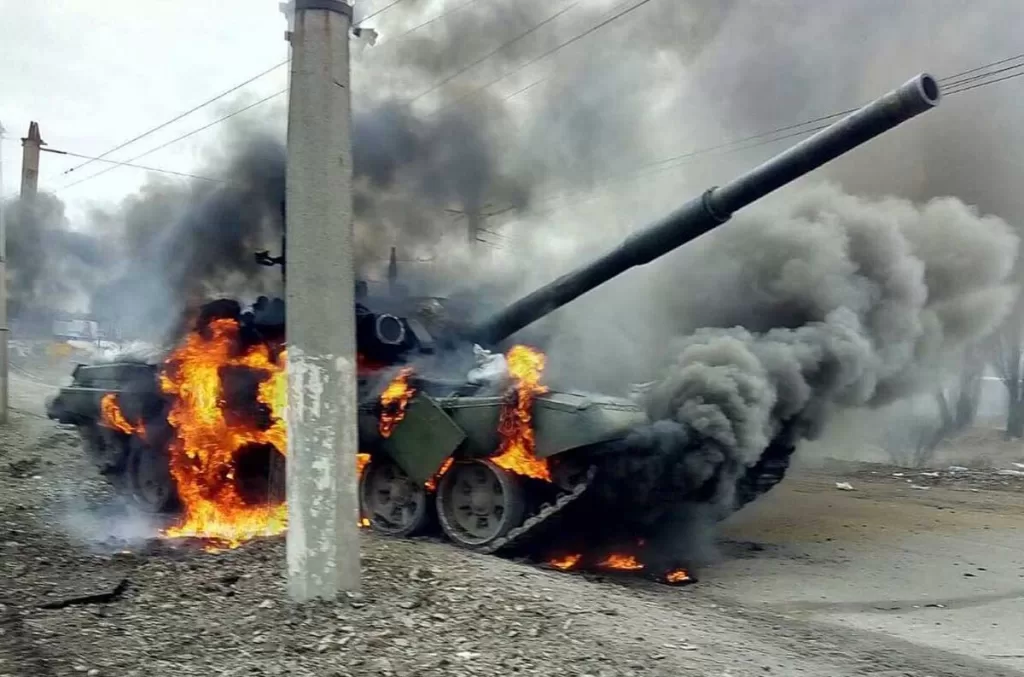US analysts say that Russia is continuing to leverage its position in the United Nations Security Council to advance several long-standing Russian information operations.
Russian Foreign Minister Sergei Lavrov spoke at the convened UN Security Council session on 22 January, accusing the West of a lack of negotiations and asserting that Russia has always been “ready for negotiations.”
However, Lavrov specified that Russia is only interested in negotiations that would remove the current Ukrainian government from power, confirming that Russia still officially seeks a change of regime in Ukraine.
At the same time, Lavrov continued to deny the independence and sovereignty of Ukraine, falsely asserting that the Ukrainian people are not interested in a war against Russia and that the West is pushing Ukraine to prolong this war.
Lavrov also counselled that the West should understand that Ukrainian President Volodymyr Zelenskyy’s Peace Formula is a “path to nowhere,” claiming that the “sooner [the West] realises this, the better it will be for both Ukraine and the West.”
Furthermore, Lavrov stated that “if Ukraine stops fighting, hundreds of thousands” of Ukrainian lives will be saved.
Experts point out that Lavrov has made similar statements before, suggesting that the Kremlin believes Russia can occupy more territories as long as the war continues, and such a progression of the conflict would increasingly weaken Ukraine’s negotiating position.
Lavrov denied Russia’s responsibility for a potential future attack on NATO, ignoring recent official statements from the Kremlin that have raised such concerns.
The Kremlin’s spokesperson falsely claimed in the report that the West is pushing the idea that Russia will attack the Baltic states, Poland, and Finland in the future to “extort money” from Western states for assistance to Ukraine.
However, Kremlin officials, including Russian President Vladimir Putin, are continuing to consistently employ threatening rhetoric towards NATO member countries. Individuals associated with the Kremlin seem to be attempting to sow instability and create a narrative for potential future aggressive actions by Russia against NATO member countries and other post-Soviet states.
Lavrov also accused Ukrainian forces of striking the territories occupied by Russia, which the Kremlin has used to support its justification for the annexation of Ukrainian territory.
The review notes that Lavrov recently claimed that Ukrainian forces are using weapons provided by the West to target civilian facilities, including during strikes on occupied Donetsk on 21 January.
Russian sources, including the Ministry of Foreign Affairs of Russia, made similar statements on 21 January. The New York Times reported on 21 January that it could not independently confirm who was behind the strike on Donetsk, and the press service of the Ukrainian Tavriia Group of Forces stated on 21 January that they were not responsible for these strikes.
It is noted that Lavrov also attempted to downplay various war crimes and crimes against humanity committed by Russian occupying forces and the occupation administration in Ukraine, claiming that Ukrainians and Russians “live in peace and harmony” in the occupied Crimea and other territories occupied by Russia.
He also stated that “Russians and Ukrainians will live exactly like brothers and good neighbours” after Russia achieves its goals in the war in Ukraine – which, according to the ISW, are equivalent to the complete capitulation of Ukraine and the West.
ISW regularly documents how Russian forces and occupation administrations are conducting large-scale and targeted campaigns of ethnic cleansing, forcibly and illegally deporting Ukrainians, including children, to Russia, and systematically working to destroy the Ukrainian language, culture, history and ethnic identity in the territories occupied by Russian forces.
Quote from the ISW: “Russia’s request for the 22 January UNSC meeting to discuss arms supplies to Ukraine and Lavrov’s use of this meeting to promote various Kremlin information operations is likely an attempt to legitimise these Kremlin narratives, promote them on a global stage, and convince Ukraine’s international partners to stop sending weapons to Ukraine.”
To quote the ISW’s Key Takeaways for 22 January:
* Russia continues to weaponise its position on the United Nations Security Council (UNSC) to propagate several long-standing Russian information operations.
* Polish Prime Minister Donald Tusk visited Kyiv on 22 January and announced a new Polish defence package for Ukraine.
* Footage purportedly showing an altercation between a Russian soldier and Chechen “Akhmat-Vostok” forces in occupied Melitopol, Zaporizhzhia Oblast, reignited criticism of Chechen forces for their lack of contributions to Russian military operations in Ukraine.
* Russian officials and information space actors are attempting to further rhetorically justify Russia’s invasion of Ukraine by misrepresenting a decree that Ukrainian President Volodymyr Zelenskyy signed on 22 January concerning discrimination against ethnic Ukrainians in Russia. Zelenskyy’s decree does not establish any territorial demands upon Russia, as select Russian ultranationalists falsely claimed.
* Russian forces made confirmed advances south of Avdiivka and west of Donetsk City amid continued positional engagements along the entire frontline.
* Kyrgyzstan issued a statement against Russia’s continued practice of targeting naturalised migrants as part of ongoing crypto-mobilization efforts.
* Russian federal subjects continue to establish ties with areas of occupied Ukraine.
